RI NOW’s annual meeting examines reproductive health, broadly defined
The Rhode Island Chapter of the National Organization for Women (RI NOW) held their annual meeting Monday night with speakers organized around the subject of reproductive rights, broadly defined. The five main goals of RI NOW are “advancing reproductive freedom, which is a perennial issue of ours and a big fight this year, promoting economic justice, ending violence against women
February 12, 2019, 9:48 am
By Steve Ahlquist
The Rhode Island Chapter of the National Organization for Women (RI NOW) held their annual meeting Monday night with speakers organized around the subject of reproductive rights, broadly defined.
The five main goals of RI NOW are “advancing reproductive freedom, which is a perennial issue of ours and a big fight this year, promoting economic justice, ending violence against women in all forms, securing LGBTQ rights and ending racism,” said Chapter President Hilary Levey Friedman as part of her introduction to the night’s program. “So, just like a totally manageable agenda.”
This year RI NOW’s three legislative priorities are Reproductive Freedom, specifically the Reproductive Health Care Act, Sexual Harassment and Universal Pre-K.
“We believe [Universal pre-K] is about economic justice [and] economic opportunity for women, both in terms of employment and on the employer side as well,” said Levey Friedman. “So you’ll be seeing us more involved, particularly with the Governor’s work…”
The first guest speaker was Massachusetts State Senator Harriette Chandler, who represents Worcester. Chandler has been a champion of women’s rights for decades, who last year she lead the passage of the NASTY Women Act, legislation that repealed a 173-year-old abortion ban. The bill passed unanimously in the Massachusetts Senate and by a vote of 138-9 in the House. This session Chandler is leading the charge on a bill called the “ROE Act,” legislation that “ensures equitable access to women’s healthcare services by removing unnecessary and burdensome provisions that delay and deny care and improve access to affordable care.”
“We needed to pass the NASTY Women Act because we could not trust court precedent to protect vulnerable women from accessing their healthcare needs,” said Chandler. “That was something we were sensitive to but until the last term, we didn’t think it would hit us, because we thought we’d always have protection. But we knew … that these protections could no longer exist just on the basis of somebody’s good will. Rather, they needed to be codified into law.”
“From the get go we’ve always had a lens in terms of social justice that we use to do the work that we do,” said Ana Novais, the Executive Director of the Rhode Island Department of Health (RIDOH). “We use that lens of social justice and human rights as a guiding framework of the work for the health department across the board.”
“Prior to 2016 there were specific clauses in … insurance plans that said they would not cover trans health car,” said Jayeson Watts, Director of Transgender Health at Thundermist Health Centers. “It was within the same week that both Medicaid and the Office of the Health Insurance Commissioner came out saying that both commercial plans and Medicaid plans had to cover this. The Governor followed suit about six months later, and mandated that all state employee plans covered it as well.”
Despite this victory, there are ongoing stressors in the trans community that threaten health. Legal documentation barriers, housing insecurity, access to [homeless] shelters, unemployment and job discrimination, and perhaps most upsetting, “a rising political interest in targeting trans lives.”
“Trans people have always existed,” said Watts. “But there’s become a more recent recognition that trans people are here. And what we’ve sen happen is that a lot of the marriage equality movement [opponents], as we’ve won that battle, that same energy, the same groups of people, are now shifting their focus and targeting trans people.”
The last speaker was Beata Nelken, who runs a clinic out of the Central Falls High School that has helped reduce teen pregnancy in that city by a staggering amount. The success of her program is indisputable, yet she faces a lack of funding that may terminate her program.
After you watch the video, you will want to support her work.
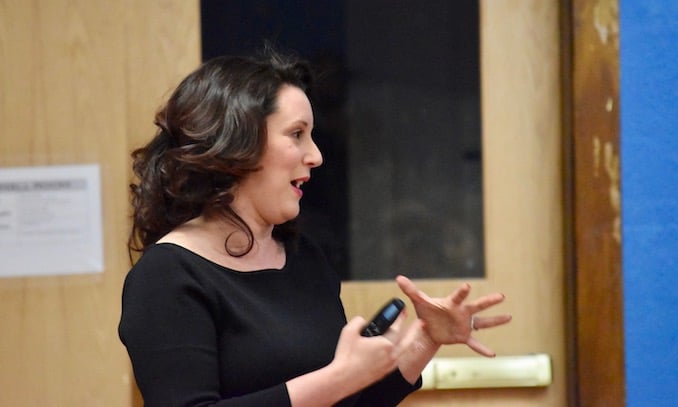
Hilary Levey Friedman 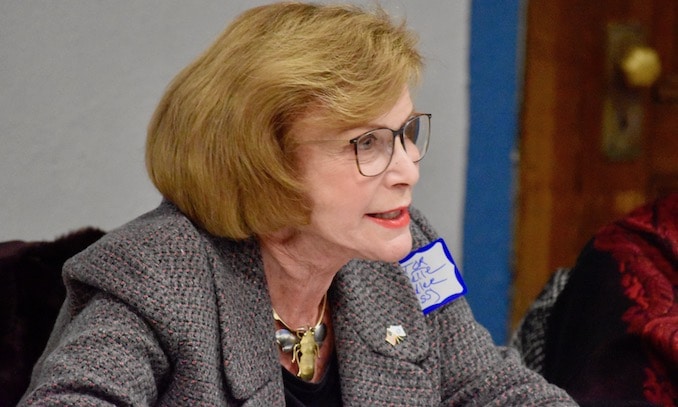
Harriette Chandler 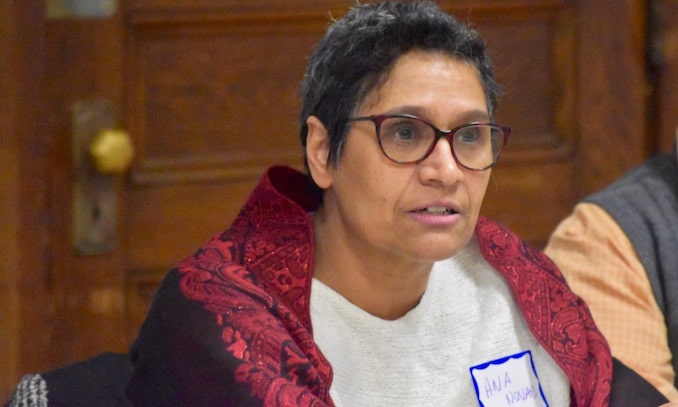
Ana Novais 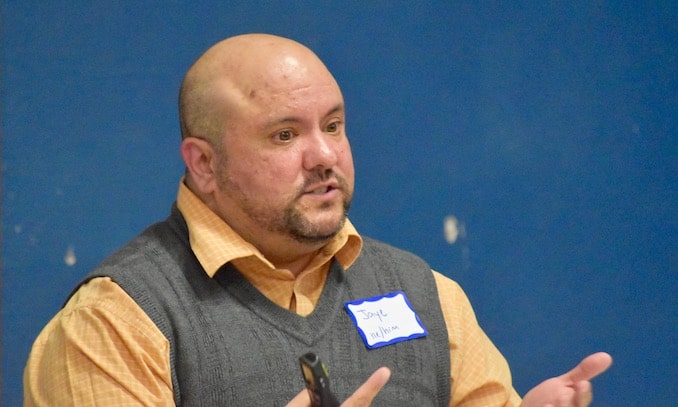
Jayeson Watts 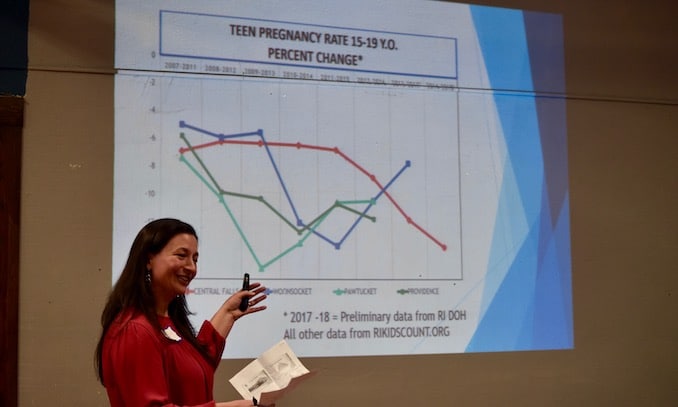
Beata Nelkin 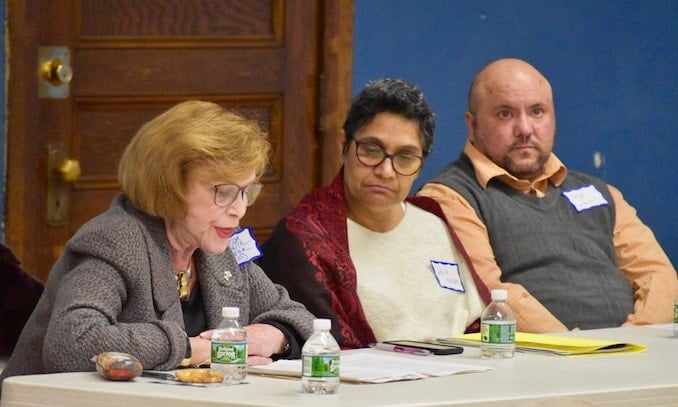
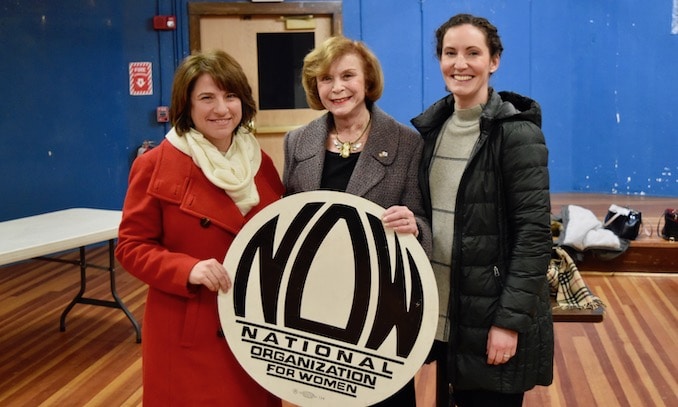
Senators Gayle Goldin, Harriette Chandler and Bridget Valverde
UpriseRI is entirely supported by donations and advertising. Every little bit helps:
Become a Patron!






